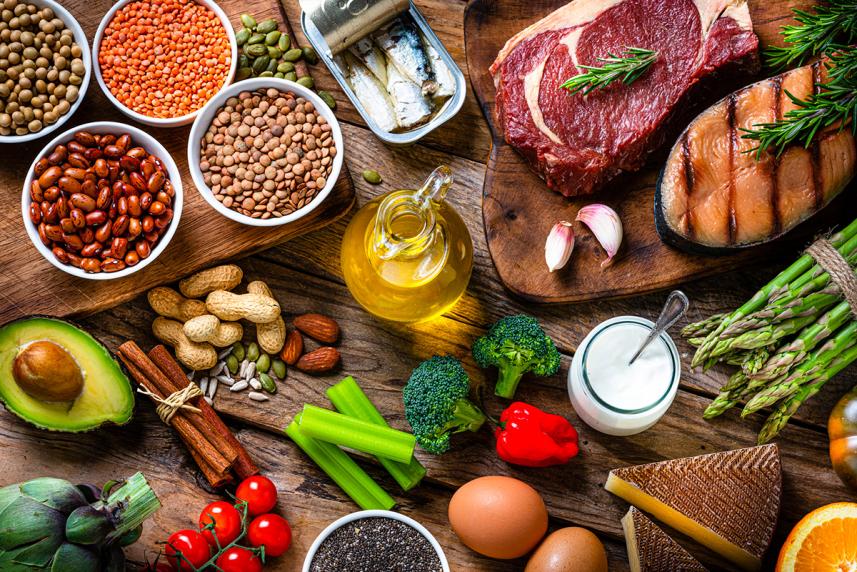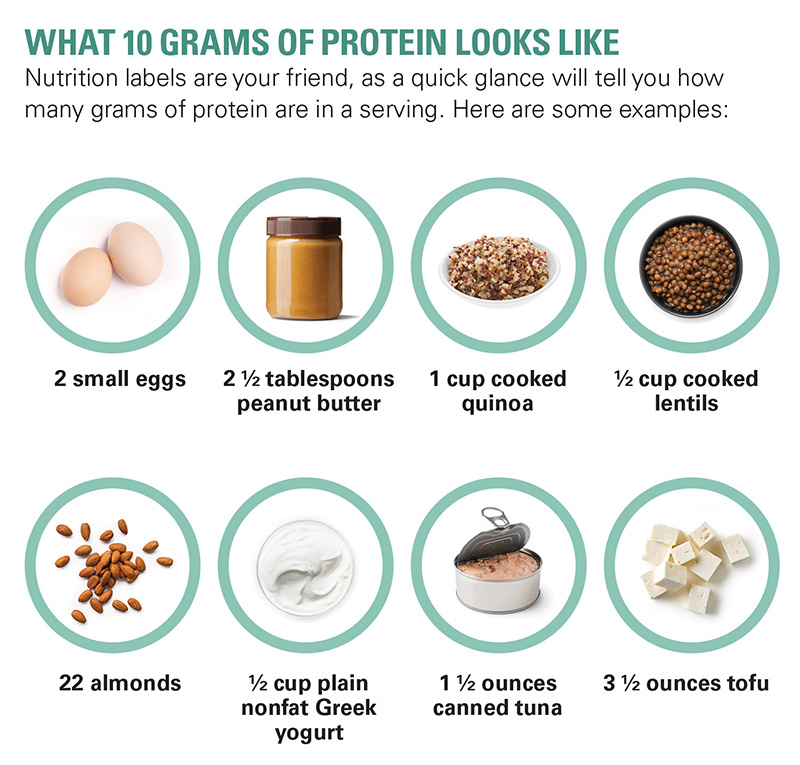The power of protein
Here’s why this nutrient is so critical to a healthy aging plan, how to calculate your needs, and simple ways to sneak more into your meals.

How much of the muscle-building nutrient do you need in a day? There’s no one-size-fits-all answer, but many adults come up short. Here’s why protein is so critical to a healthy aging plan, how to calculate your needs, and simple ways to sneak more into your meals.
Why you need it
Protein not only helps you feel fuller longer but also helps build strong bones, increase muscle mass, boost metabolism, support immunity, and repair tissue.
The age factor
With each turn of the calendar, your body becomes less efficient at converting protein from food into new muscle. That gradual muscle loss can lead to a decline in strength and mobility, even frailty. Hitting your daily protein targets can serve as a protective buffer.
To supplement or not
Whole foods are the best source of protein, but protein powders can be helpful if you’re struggling to meet your daily needs. If you’re concerned about your protein intake, talk to your doctor about ways to meet your requirements.
Calculating your needs
The Nutrition and Aging Resource Center recommends that older adults get between 1 to 1.2 grams of protein per kilogram of body weight to shore up muscle mass and overall wellness. That translates to 68 to 82 grams of protein each day for a 150-pound person. Rather than get stuck on the math, dietitians encourage people to simply aim to consume 25 to 30 grams of protein at every meal.



